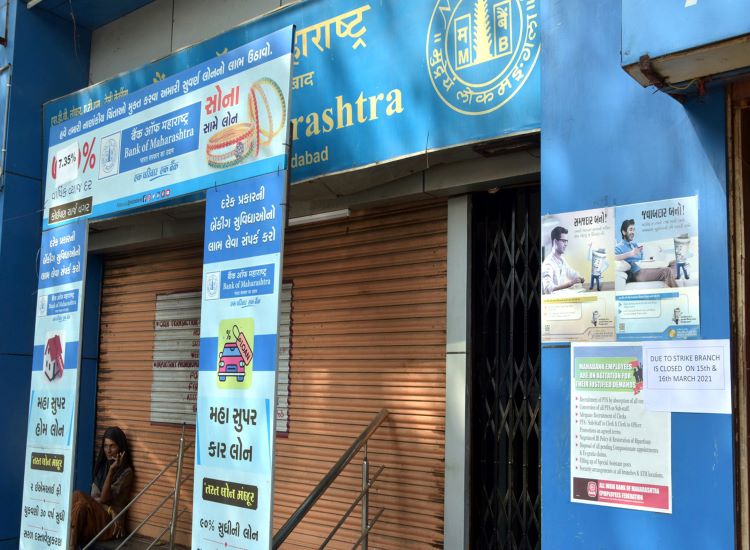 Bank Strike
Bank Strike Banks to go on strike for two days against privatisation: Union leader
Hyderabad/UNI: The United Forum of Bank Unions (UFBU), an umbrella body of nine unions and associations, on Monday threatened an all India-strike on December 16 and 17 in protest against privatisation of public sector banks.
It is a patriotic struggle to save the assets of the nation from outright sale to the corporate world, UFBU (Andhra Pradesh and Telangana) Convenor B.S. Rambabu told the media here.
Rambabu said privatisation of state-run banks will jeopardise the interests of common people and backward regions of the country, adding that bank employees and officers are prepared to fight the government.
"Our struggle is to defend public sector banking; demand pro-people banking policies; ensure broad-based economic development of our country; ensure vibrant banking to enable a vibrant economy and protect the interest of the entire workforce of the banks," he said.
If the government moves a bill in Parliament to privatise the banks, the employees and officers will go on an indefinite strike against privatisation, he warned.
Rambabu said the union government has decided to table the Banking Laws (Amendment) Bill 2021 during the current winter session of Parliament to enable the government to privatise the banks.
"Only after nationalisation, our banks have become accessible to the common masses and played a major role in the development of agriculture, small trade, small business, SSI and transport and in uplifting the weaker sections," he added.
The Convenor said: "In a developing economy like ours, PSBs have to be further strengthened and expanded to accomplish the goals, aims and objectives of bank nationalisation for serving the interests of vast masses of this country.
"In this background, attempts to privatise our banks are 'unwarranted and counter-productive," he said, adding that privatisation will result in these banks and their vast resources being handed over to private hands.
Rambabu said the banks represent a huge and precious savings of the people and it is imperative that the government should be their custodian and of the people's money.
"Reaching the vast population in rural areas and in the villages is an important task of our banks. If banks are privatised, this social orientation will be a casualty and the banks will tend to become urban-oriented," he pointed out.
In 2008, when the world economy was plunged into a deep financial crisis and meltdown, it were the public sector banks which helped the Indian economy to sustain, he said.
"We all know the efficiency of private banks, many of which have failed and closed down in the past due to mismanagement. On the other hand, all the public sector banks are doing well.
"The only issue (the banks confront relate to) huge Non-Performing Assets (NPAs) in which the major share is that of big corporates," he said.
He said that successive governments have taken initiatives such as Debt Recovery Tribunals, SARFAESI Act and IBC but they did not yield the desired results. Therefore, the banks were forced to write off those loans, resulting in huge losses.
This shows that it is not the nationalisation of banks but the willful default of the corporate and big business houses which have dragged the banks into this crisis, he said.
Even under the Insolvency and Bankruptcy Code, while bad loans have been resolved and banks could get back some portion of the loan, it has been with huge haircuts, he said.
It is also a matter of reality that time and again public sector banks were used to bail out the ailing private sector banks such as Global Trust Bank, United Western Bank and Bank of Karad, he said.
In the recent past, it was Yes Bank which was bailed out by SBI, he said, and adding that the private sector’s largest NBFC, IL&FS, was also bailed out by SBI and LIC.
The government says it is implementing various social sector loans, pension and insurance schemes, in which the major share is that of state-run banks, he said.
During the pandemic, the public sector banks gave uninterrupted customer services, he said.
Support Our Journalism
We cannot do without you.. your contribution supports unbiased journalism
IBNS is not driven by any ism- not wokeism, not racism, not skewed secularism, not hyper right-wing or left liberal ideals, nor by any hardline religious beliefs or hyper nationalism. We want to serve you good old objective news, as they are. We do not judge or preach. We let people decide for themselves. We only try to present factual and well-sourced news.







